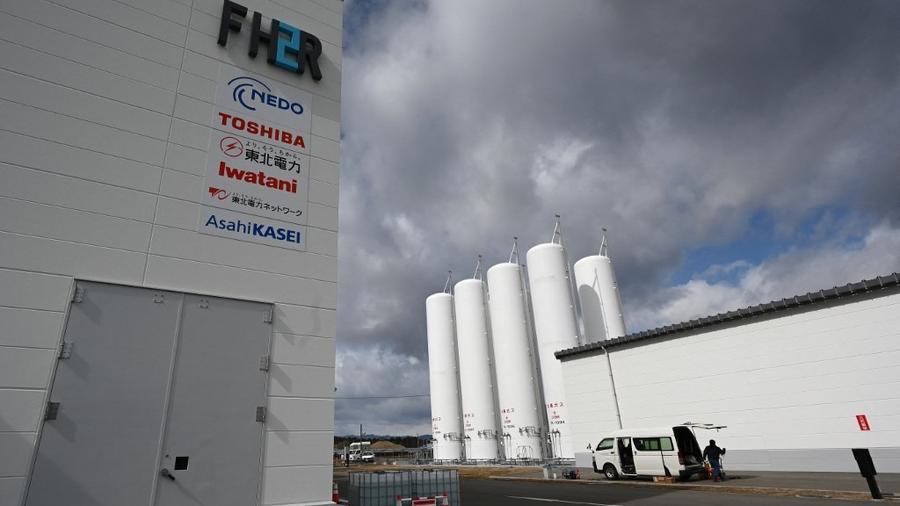 This photo shows a section of the hydrogen storage and supply facilities at the Fukushima Hydrogen Energy Research Field on Feb 15, 2023. (PHOTO / AFP)
This photo shows a section of the hydrogen storage and supply facilities at the Fukushima Hydrogen Energy Research Field on Feb 15, 2023. (PHOTO / AFP)
TOKYO — Japan is planning to raise its supply of hydrogen, from its current 12 million to 72 million tons by 2040, in a bid to promote the use of renewable energy, according to the government's revised resource policies on Tuesday.
To fund the target, the government of Prime Minister Fumio Kishida is planning to raise investment to the tune of 15 trillion yen ($113.12 billion) from both the public and private sectors over the next 15 years, the draft resource policies showed.
Hydrogen is seen as the key to the country's energy shift towards green power over the coming decades, with the green transition in particular being called GX
The Japanese leader promised at a meeting attended by relevant ministers on Tuesday to revise the government's Basic Hydrogen Strategy by the end of May, which was initially compiled in 2017.
READ MORE: Japan seeks to aggressively cut fossil fuel, lift renewables
The government's strategy to increase its use of hydrogen by sixfold by 2040, is a part of the push to achieve net zero greenhouse gas emissions by 2050.
Hydrogen is seen as the key to the country's energy shift towards green power over the coming decades, with the green transition in particular being called GX.
"It is necessary to utilize GX bonds and prompt investment from the private sector to promote decarbonization in Japan," Kishida said.
GX bonds are a new type of sovereign bond, according to the government, that will be making their inaugural debut during the fiscal year starting in April, informed sources here have said.
The bonds will be worth around 20 trillion yen ($150.81 billion) from the latter half of fiscal 2023, they added.
READ MORE: Japan eyes renewables, nuclear restart in race for 2030 climate goal
The government here has also vowed to promote the broad-scale commercialized use of vehicles and buses that use hydrogen fuel cells and has pledged to see hydrogen power generation commercialized by 2030, according to its Basic Hydrogen Strategy.


